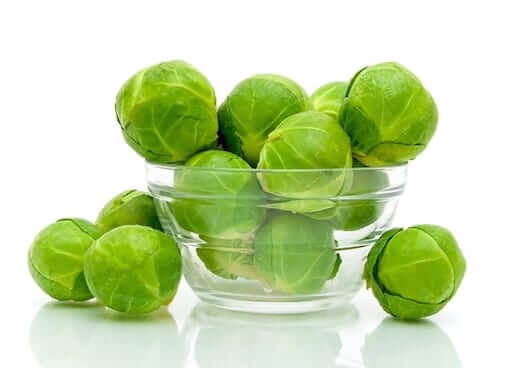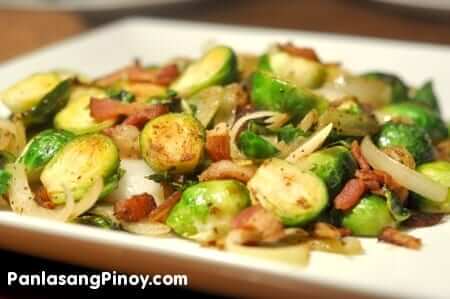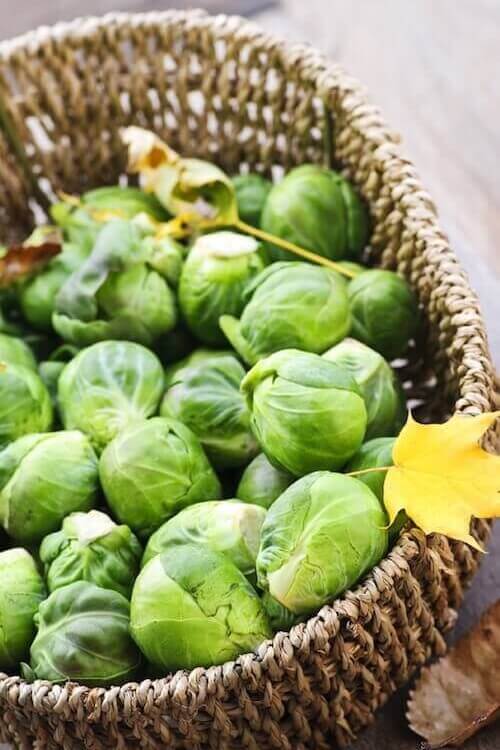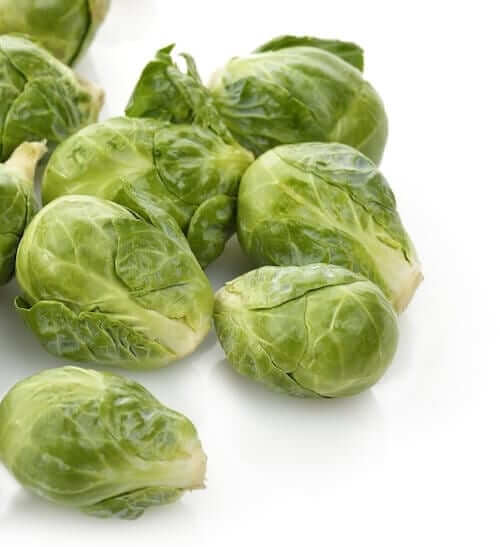Brussels Sprouts
Next time you go grocery shopping, grab a pack of fresh Brussels sprouts to improve your diet. These green, round vegetables are excellent sources of many nutrients you need daily. They are especially great for vegetarians who need alternative sources of protein. Although their origin is uncertain, what is certain is that they have an…
This post may contain affiliate links. Please read our disclosure policy.
Next time you go grocery shopping, grab a pack of fresh Brussels sprouts to improve your diet. These green, round vegetables are excellent sources of many nutrients you need daily. They are especially great for vegetarians who need alternative sources of protein. Although their origin is uncertain, what is certain is that they have an impressive nutritional profile that can better your health.

Types of Nutrients in Brussels Sprouts
Like most green natural foods, Brussels sprouts are packed with vitamins and minerals. They contain some of the highest levels of vitamin A and C, as well as calcium and potassium. Your body needs vitamin A for organ growth and to maintain their function. It is also essential for visual health. Vitamin C is a powerful cold and flu buster, and can slow down aging and increase energy.
Brussels Sprouts and Bone Health
If you have low bone density or weak muscle due to illness or aging, Brussels sprouts can help. These vegetables actually contain reasonable amounts of protein, which is unusual for plants. Protein, combined with the potassium and calcium found in Brussels sprouts, can greatly improve muscle and bone strength and agility.
Protein is made up of amino acids, and the amino acids found in Brussels sprouts are not complete. This is why experts recommend that you pair sprouts with whole grains. Whole grains are seeds, breads, pastas and cereals that have not been processed. These can include quinoa, whole wheat bread and brown rice.
Brussels Sprouts and Weight Loss
A cup of cooked Brussels sprouts contains an average of 50 calories. This is good news if you are following a weight loss diet. Sprouts hardly have any fat, and can be eaten in large amounts without packing on the pounds. It is advisable to season them with low-calorie dressings and seasonings to avoid adding unnecessary calories to your meal.
Brussels Sprouts and Diabetes
Following a low-glycemic diet is not only beneficial for diabetics, but also for weight watchers as well. For a food to qualify as low-glycemic, it has to have little effect on blood sugar levels. High blood sugar and insulin levels can cause weight gain, hyper or hypo-glycemia and many other health complications. To avoid this, fill your plate with slow-releasing foods like Brussels sprouts.
Cooking with Brussels Sprouts
Brussels sprouts are easy to prepare, partly because they don’t need much cooking. Some of the best ways to cook sprouts is to blanch or steam them. Not only are these cooking methods time-saving, but they preserve lots of nutrients too. Alternatively, you can boil Brussels sprouts in lightly seasoned water, or roast them until crispy in the oven. Making Sauteed Brussels Sprouts with Bacon is also a good idea.
Delicious alone, sprouts are great snacks for between meals. You can also toss them in a healthy dressing and add to a salad with other greens. They are also tasty in hearty casseroles and stews. Be careful not to over-season Brussels sprouts and opt for organic seasonings like salt, spices, herbs, lemon or lime juice. Serve and enjoy.



Leave a Comment